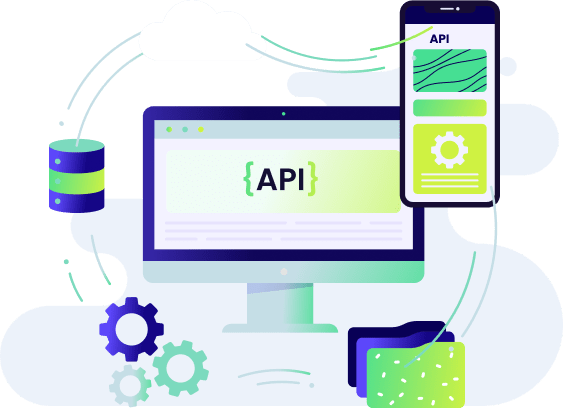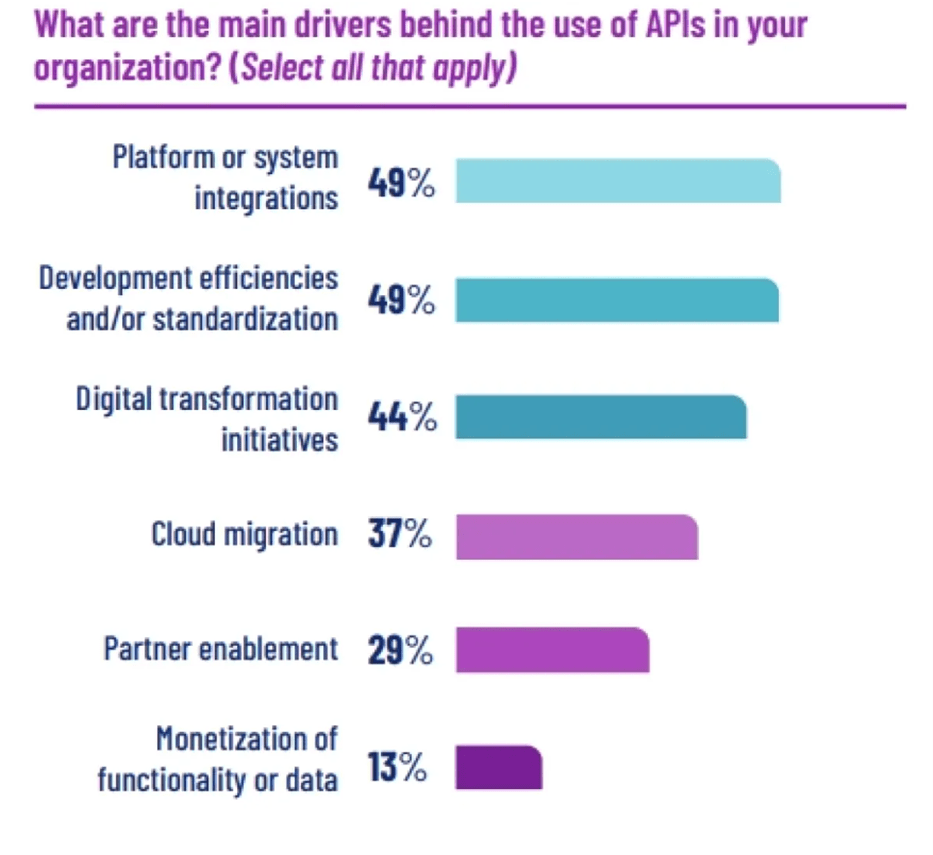6 Key Benefits of API Testing


In the dynamic landscape of software development, Application Programming Interfaces (APIs) serve as the backbone of modern connectivity. They enable seamless communication between diverse applications and systems. With various types of APIs emerging, including RESTful APIs, GraphQL, SOAP, etc., developers have many options when designing their integration solutions.
As businesses increasingly rely on API platforms to deliver robust, interconnected solutions, ensuring the reliability and efficiency of these interfaces becomes paramount.
This is where API testing steps in. It offers a comprehensive approach to validate APIs’ functionality, reliability, performance issues, and security. As per AI Multiple Research, the main factors behind using APIs in organizations are as follows:

Now that we know the landscape of APIs, let’s explore the world of API testing and uncover the benefits of API testing.
What is API Testing and API Testing Automation?
API testing entails rigorously examining APIs to ensure they behave as expected, interact seamlessly with external systems, and adhere to predefined specifications. It is a critical component of the software development lifecycle. It enables organizations to identify and rectify issues early on, enhancing overall product quality and user experience.
API testing automation, on the other hand, leverages specialized tools and frameworks to streamline the testing process, improving efficiency and accuracy. AI/ML intelligence also plays a pivotal role in API testing automation.
Industry statistics indicate that the global API Testing market was valued at US$538.9 million in 2022. It is projected to reach US$1452.4 million by 2029, at a CAGR of 15.2%.
Benefits of API Testing Automation
Understanding the benefits of API testing and its diverse types is essential in ensuring the reliability and functionality of critical interfaces. Types of API testing encompass a broad spectrum, including unit testing, integration testing, functional testing, security testing, and more.
API performance metrics also play a pivotal role in assessing the efficiency and responsiveness of APIs, ensuring optimal user experiences. Metrics such as response time, throughput, and error rates provide valuable insights into an API’s performance under various conditions.
Moreover, integrating API testing into a Continuous Integration and Continuous Deployment (CI/CD) pipeline is crucial for maintaining quality and efficiency throughout the software development lifecycle. By automating the execution of test cases within CI/CD pipelines, teams can ensure rapid feedback loops. They can also detect early bugs and seamlessly integrate new features and updates.
The benefits of API testing are manifold, ranging from improved test coverage to cost-effectiveness. By leveraging automation in API testing, organizations can unlock additional advantages such as streamlining processes, accelerating time-to-market, and optimizing resource utilization.
Let’s explore the benefits of API testing automation in detail and how it empowers businesses to deliver robust, high-performing APIs in today’s dynamic digital landscape:
- Improved Test Coverage
API testing automation enables comprehensive test coverage by validating the entire spectrum of API functionalities. This includes different endpoints, request methods, input parameters, and response codes. By thoroughly testing various scenarios and edge cases, testers can uncover potential vulnerabilities. They can also ensure that APIs meet all specified requirements.
A webinar that might interest you: Upgrading API Testing Practices for Improved Testing Speed, Scale & Efficiency - Enhanced Scalability
As businesses scale and evolve, their APIs must accommodate increasing loads and user demands without compromising performance. API testing automation allows teams to simulate heavy user traffic, stress test APIs under various load conditions, and identify potential bottlenecks or scalability issues. By proactively addressing scalability concerns, organizations can ensure seamless user experiences and prevent service disruptions. - Faster Time to Market
API testing automation accelerates the software development lifecycle by streamlining testing processes and reducing time to market. Automated tests can be executed quickly and repeatedly. This allows teams to detect and address issues early in the development phase. With rapid feedback loops and continuous integration pipelines, organizations can iterate faster, release updates more frequently, and stay ahead of competitors in today’s fast-paced digital landscape.
An eBook worth reading: API Testing: Fastest Way to Shift Left - Regression Testing
Changes or updates to an API can inadvertently introduce regressions, causing previously functional features to break. API testing automation enables efficient regression testing by automatically retesting existing functionalities after each code change or deployment. By detecting regressions early and automatically validating critical functionalities, teams can maintain product stability and prevent service disruptions in production environments. - Early Bug Identification and Bug Fixing
API testing automation helps identify bugs and issues early in the development lifecycle, reducing the time and effort required for bug fixing. By detecting and addressing issues at an early stage, teams can prevent costly rework and ensure higher product quality. Automated tests provide actionable insights into the root causes of failures, enabling developers to troubleshoot and resolve issues promptly. - Cost Efficiency
API testing automation offers significant cost savings for organizations by automating repetitive testing tasks and reducing manual intervention. Automated tests can be executed round-the-clock, maximizing resource utilization and minimizing testing overheads. Additionally, early bug detection and streamlined processes result in lower development costs and faster time-to-market, ultimately driving greater ROI for businesses.
An interesting 5 minutes read on ROI: The Hard ROI of API Testing Automation
Conclusion
Incorporating API testing into your development process is not just about catching bugs; it’s about ensuring that your API platforms are reliable, secure, and performant. By prioritizing API testing, you can build trust with your users, drive innovation, and stay ahead of the competition in today’s interconnected world.
API testing automation offers many advantages for organizations that deliver robust, scalable, and high-performance APIs. From improved test coverage and enhanced scalability to faster time-to-market and cost efficiency, the benefits of API testing automation are undeniable. By embracing automation and leveraging the right tools and frameworks, businesses can ensure the reliability, efficiency, and security of their APIs. This, in turn, can enhance customer experiences and drive competitive advantage in today’s digital economy.
So, embrace API testing as a fundamental aspect of your development workflow, and reap the benefits of robust and reliable API platforms that empower your business.
Check out our platform QAPi, an AI-first API testing automation platform for the public. It’s the only free platform (unlimited time) that includes more than enough features to run your API tests with speed and efficiency.
Try it out to believe it. Sign up for the Freemium account now!






